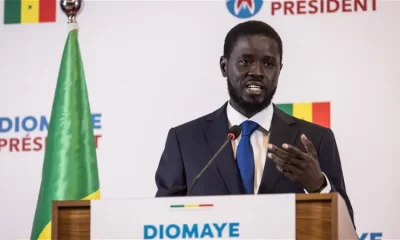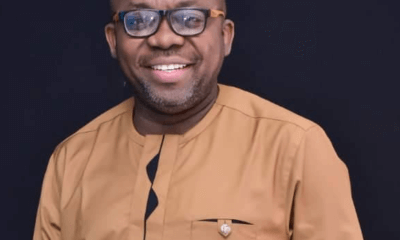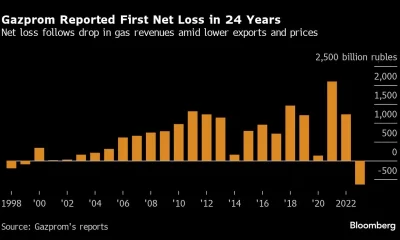Democracy & Governance
How Innovative Financing Can Help Rebuild Nigeria’s Failing Healthcare System -By Suzette Plantema


Suzette Plantema
African countries are feeling the economic pinch. Commodity prices have plunged, the Chinese economy has slowed down, emerging market risk aversion has surfaced, and rising government debt levels are causing concern. Against this background, Nigeria is seeking Innovative Financing for Development mechanisms to bolster the healthcare sector, as its economy also faces a slide.
Health experts, including the former Health Minister, Prince Julius Adelusi-Adeluyi; the former Chief Medical Director of the Lagos University Teaching Hospital (LUTH), Professor Akin Osibogun; and the Chief Executive Officer of Stanbic IBTC Bank Plc, Mr. Yinka Sanni, have urged the Nigerian government to look for innovative strategies to boost the financing of healthcare in the country.
The experts who spoke in Lagos stated that such strategies would help to reduce the nation’s current high rate of out-of-pocket expenditure and improve Nigeria’s poor health indices.
Professor Osibogun stated that one of the greatest challenges facing the nation’s healthcare system has been inadequate government health expenditure in comparison with total budget. Nigeria has not been able to meet the vision of the Abuja Declaration, which envisions an allocation of 15 percent of the nation’s budget to healthcare (Nigeria only spends 6.1 percent).
The former LUTH CMD regretted that health expenditure utilisation has been characterised by significant inefficiency and wastage. Although the mortality rate of children under five has been dropping to an annual rate of 4.8 percent over the past few years, far more still needs to be done in the healthcare arena. Some other pertinent facts are:
• 42 percent of the Nigerian population does not have access to safe drinking water;
• 69 percent does not have access to basic sanitation;
• Pneumonia, diarrhoea and malaria claim the lives of about 596,000 children every year;
• Significant inequities exist with regard to access to and utilisation of critical-care services (the burden of morbidity and mortality from preventable diseases and conditions is disproportionately borne by the poorest members of society);
• women lack access to antenatal care and skilled attendance at delivery;
• The ratio of doctors to people is 0.4:1000.
The public health financing specialist has urged the government to extend taxation towards beverages and confectionery to raise money to counterbalance their negative role in Non-Communicable Diseases (NCDs).
This would be a step in the right direction, but what Nigeria really needs is a comprehensive and systematic Innovative Financing for Development programme to help finance healthcare.
Sorting out the healthcare sector in Nigeria is a big challenge, because of the inherent inequities and other factors, and will require significant development assistance—at least in the short to medium term, as the majority of the Nigerian population (63 percent) lives below the poverty line of USD 1.00/day.
While the approaches differ, a growing number of developing/emerging countries are building/have built made-to-measure innovative financing systems with the assistance of global ICT expert Global Voice Group (GVG), like those that could be used to bolster healthcare in Nigeria. The government should focus on the priorities and on financing that work, to deliver universal and equitable healthcare for everyone.
There are powerful revenue-raising opportunities available to the Nigerian government. One way in which to finance healthcare is through GVG’s Innovative Financing for Development model.
GVG works exclusively with governments to examine the different private sector industries: mining and minerals, energy, travel and tourism, mobile telecommunications and other economic activities, to find new revenue streams for the government. There are many opportunities—this is not an exhaustive list. Having identified new potential revenue streams, these resources must be mobilised by collecting and protecting them in an efficient manner. This involves complex data collection and processing systems incorporating fraud management systems. GVG could give the government full control over the data and the revenues generated through its specialised ICT and technology expertise.
The breakdown of the telecommunications traffic in Nigeria shown below demonstrates that $218.2 million could be generated per annum from Telecoms alone.
International Traffic
| Telecommunications | Minutes per year | Micro-contribution | Anticipated Annual Revenue |
| Inbound Outbound |
3.8 billion 1.41 billion |
5 cents/minute 2 cents/minute |
$190 million $28.2 million |
| Total Estimated Annual Revenue | $218.2 million | ||
While the assessment of an Innovative Financing project for HIV was judged not to be feasible in 2012, because it would be necessary to increase the contribution rates too much, one must look at the big picture. There are opportunities to combine the $218.2 million generated from Telecoms alone, with micro-contributions on other global activities such as remittances, mobile money transfers, mobile top-ups, and international arrivals—once again, a far from exhaustive list.
The Nigerian government must demonstrate the political will to create an equitable and fair healthcare system which works for everybody. Furthermore, it must have full control over the data relating to the revenues and any Innovative Financing for Development mechanism must be properly implemented. The funds should be invested wisely in the Nigerian government’s national priority projects—such as improving health care—and the government needs to install fraud management systems to curb the rampant cyber fraud which is costing it an estimated USD 400 million. GVG can do this in partnership with the Nigerian government. No government can afford to lose such an enormous chunk of its revenues.
If the Nigerian government ensures the proper governance of the telecommunications and other sectors by installing efficient and cutting-edge ICT technology systems, it will have gone a long way towards ensuring good health and quality of life for all in Nigeria—especially the poor. An added benefit will be the investors the country will attract with its orderly and well-managed sectors of the economy.
Suzette Plantema is an independent writer.



















